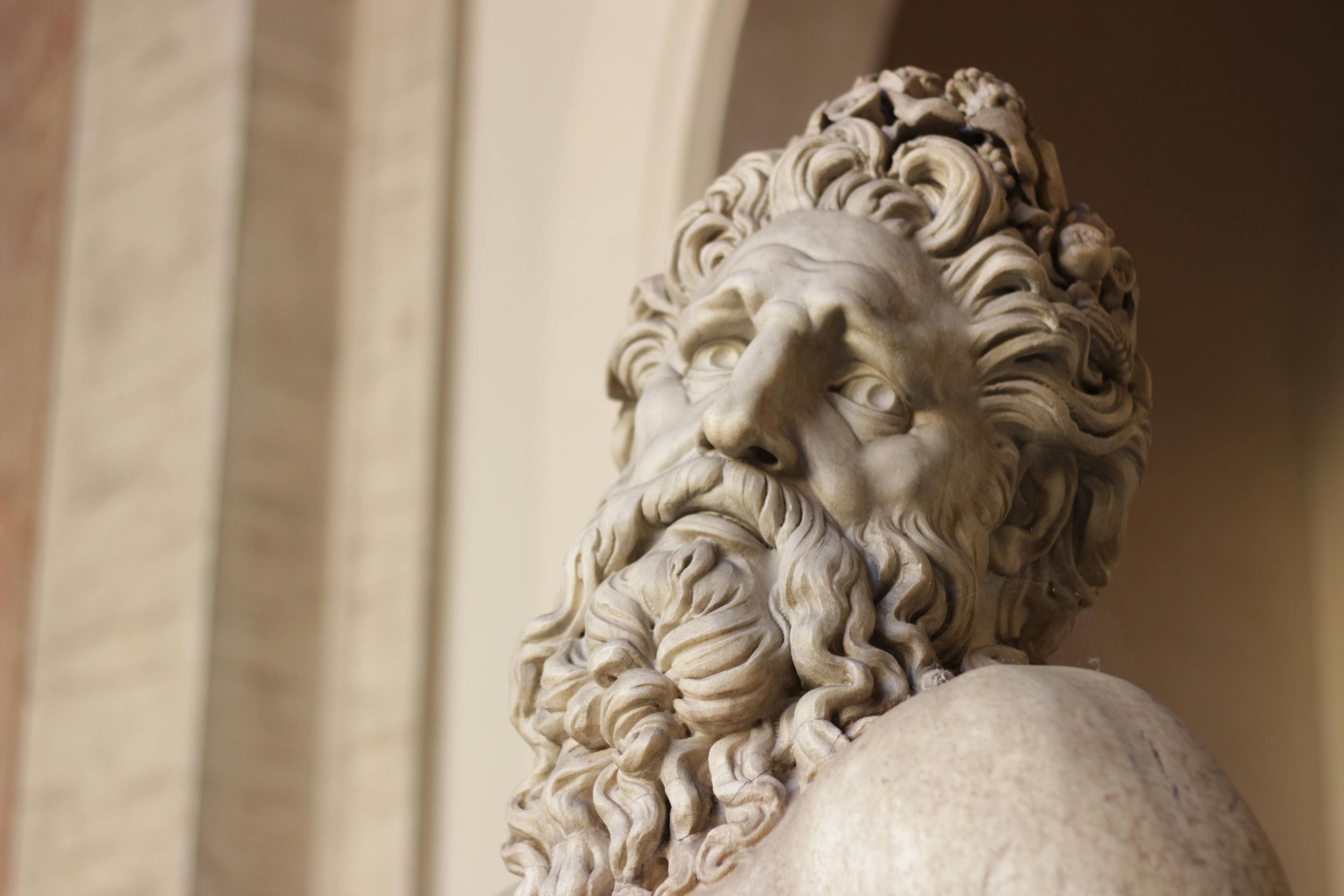The Ruler and the Challenger: The Eternal Struggle for Power
Throughout history, every civilization has been shaped by an ongoing tension: the struggle between those who hold power and those who challenge it.
There is always a ruler who fears losing control, who believes that order must be preserved at any cost. And there is always a challenger who dares to disrupt the status quo, believing that power should not be hoarded but shared.
This ancient conflict is embodied in one of mythology’s most enduring stories: the battle between Zeus and Prometheus.
Zeus, ruler of Olympus, believes his authority is divinely ordained. He sees himself as the protector of balance, the enforcer of order.
Prometheus, the challenger, sees power differently. He does not accept that knowledge should be kept from humanity. By stealing fire from the gods, he challenges Zeus’s claim to absolute control.
Zeus responds not with reason, but with punishment. He chains Prometheus to a rock, sentencing him to eternal torment, not just as retribution, but as a warning to others who might dare to question his rule.
This is not merely a myth. It is a pattern that repeats throughout history, in politics, society, and even within our own minds.
The Archetype of the Ruler: When Power Becomes Control
Power, at its core, is not just about strength, it is about the ability to define reality. The Ruler, whether a god, a king, an institution, or an ideology, does not maintain power through force alone. They maintain it by controlling the narrative, by defining what is possible and what is forbidden.
How the Ruler Maintains Control:
The Justification of Power: Those in power rarely see themselves as tyrants. They believe their authority is necessary, that without them, there would be chaos.
Hoarding Knowledge to Maintain Dependence: Just as Zeus denies fire to humanity, many rulers throughout history have sought to limit education, information, or technology that could empower the masses. When people remain dependent, they remain controllable.
Punishment as a Warning: When power is questioned, the response is often swift and brutal, not merely to stop the challenger, but to make an example of them. Fear keeps others from following.
The Archetype of the Challenger: The One Who Questions Power
The Challenger is not just someone who opposes authority, they are the ones who see the cracks in the illusion and dare to imagine a different world.
The Two Faces of the Challenger:
The Trickster: Uses wit, subversion, and creativity to expose power’s weaknesses. The Trickster is not always a warrior, they use humor, art, or strategy to undermine authority from within.
The Warrior: Directly challenges power, knowing full well the risks involved. The Warrior understands that rebellion comes with consequences, but chooses defiance over submission.
Prometheus embodies a bit of both. He steals fire with cunning and accepts his punishment with defiance. It’s mainly about breaking Zeus’s monopoly on power, rather than ruling himself.
But power does not surrender willingly.
The Cycle of Power and Challenge: Where Do We Stand?
The struggle between the Ruler and the Challenger is not just an ancient myth. It plays out in governments, corporations, religions, and even within our own internal beliefs.
Have you ever accepted a limit on yourself because you were told it was necessary?
Have you ever silenced your own voice out of fear of consequences?
Have you ever seen an injustice but hesitated to challenge it?
We do not live outside this story. We are characters within it. The only question is: What role are we playing?
How to Break Free From the Script
To challenge power, you don’t need to overthrow a government or start a revolution. The most radical act begins within: questioning the story you’ve been given.
Ways to Reclaim Your Narrative:
Recognize the System You Are Part Of: Ask yourself, Who benefits from the way I see the world? Who controls the narrative I live by?
Challenge the Boundaries of Possibility: Power remains in control when people believe change is impossible. But every revolution begins with one person daring to imagine something different.
Understand the Cost of Rebellion: Prometheus paid a price for his defiance, as have countless others throughout history. The question is not whether resistance is easy, it never is, but whether it is worth it.
Power Is a Story, And Stories Can Change
Zeus believed he was protecting divine law. Prometheus believed he was freeing humanity.
The fire Prometheus stole could never be taken back. Once given, it ignited an irreversible transformation. But the cost of challenging status quo was suffering, and the cost of maintaining order was oppression.
This is the eternal cycle:
Power seeks to preserve itself.
Rebels, heretics, visionaries challenge it.
New systems emerge.
The only question is: Where do you stand in the story today? Are you defending order or breaking it? Are you maintaining the system or questioning it? And is that the role you truly want to play?
Because the greatest truth of all is this:
We can rewrite the script.
And that is where real power begins.


